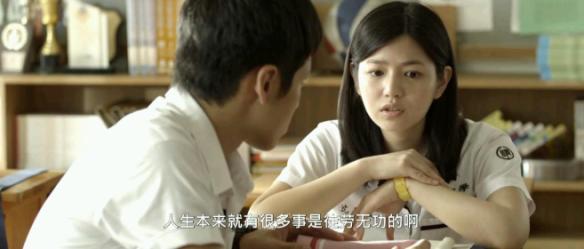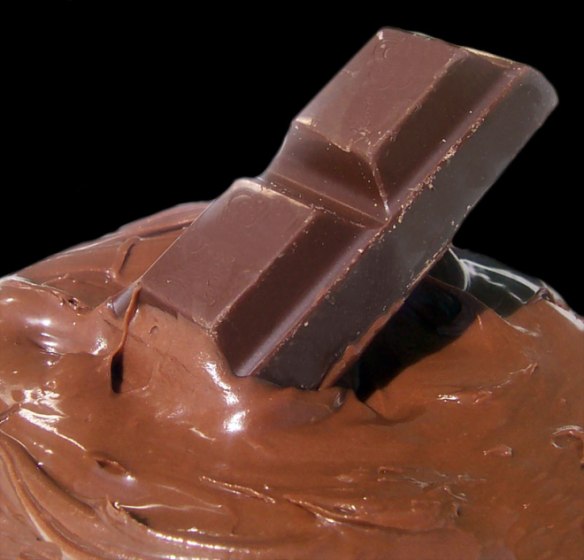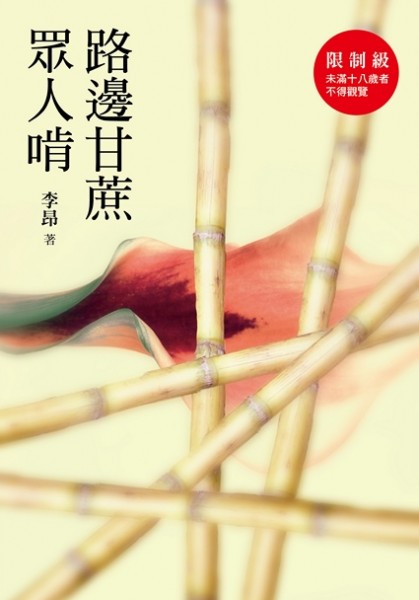The nicest thing one can say about this film is that it gives an idea of what it was like growing up as a straight boy in Taiwan for the generation born in the 1980s, or at least an idealized “idol drama” version of it – but I think that this is done in a more interesting way in Eternal Summer (《盛夏光年》), which incorporates a gay story line and has more complex character development beyond the Taiwanese “everyman” represented in this film and even Winds of September (《九降風》). Based on a short story by Giddens Ko, a Taiwanese blogger-cum-novelist, You Are the Apple of My Eye is an extended idol drama, a dreary recounting of the author’s high school and university years. The humor in the film incorporates several wank jokes reminiscent of American Pie, but in this film these just came off as weird as the film tries to be an idol drama and The Inbetweeners at the same time, so the protagonist is a compromise between the typical Taiwanese drama male lead and an inbetweeners-style comically unself-aware weirdo and the balance didn’t quite work here, as he just came off as cocky. Continue reading
Tag Archives: taiwan
Nothing like a bit of Budaixi after a hard day at work in Wanhua 萬華街頭布袋戲
 There was a big celebration going on in in Wanhua (萬華) on Saturday, with people from the local temples dressed up as gods (some of which were eating bento boxes and others sneaking a quick pee in alleys, but well-behaved all in all). As I was cycling home, I saw this Budaixi truck, playing to no one, so I stopped to have a lookey-loo and as no experience is complete without being filtered through the ‘me-machine’ (a description of smartphones in Joshua Ferris’ new book To Rise Again at a Decent Hour – a promising book that didn’t really seem to come to a satisfactory end), I filmed a bit of it. This kind of thing offers a great opportunity to study a bit of Taiwanese, although I’m not sure how useful the vocab is. Below the video is a transcript courtesy of a Pingtung friend, the “x”s mark the bits that even he couldn’t understand. Anyone with a better ear for Taiwanese welcome to comment below to fill in the gaps:
There was a big celebration going on in in Wanhua (萬華) on Saturday, with people from the local temples dressed up as gods (some of which were eating bento boxes and others sneaking a quick pee in alleys, but well-behaved all in all). As I was cycling home, I saw this Budaixi truck, playing to no one, so I stopped to have a lookey-loo and as no experience is complete without being filtered through the ‘me-machine’ (a description of smartphones in Joshua Ferris’ new book To Rise Again at a Decent Hour – a promising book that didn’t really seem to come to a satisfactory end), I filmed a bit of it. This kind of thing offers a great opportunity to study a bit of Taiwanese, although I’m not sure how useful the vocab is. Below the video is a transcript courtesy of a Pingtung friend, the “x”s mark the bits that even he couldn’t understand. Anyone with a better ear for Taiwanese welcome to comment below to fill in the gaps:
[wpvideo K0iPJVb8]
XXX的信使,到現在一點消息都沒有,我的女兒XXX,女兒不見只好對付(fight)大宋(Song Dynasty 960-1279)官兵,來去(出發)啊~~~ (015~025音樂)
Vocabulary:
使差 or 使俠? (This one isn’t clear but the meaning is 信使 or messenger) it sounds like sú kiap or gia̍p, but can’t be sure. Any help in the comments below would be appreciated. Continue reading
When shit flows out of my eyes 流目屎 lâu-ba̍k-sái
One of the more amusing literal translations from Taiwanese is the phrase for crying – lâu-ba̍k-sái, which literally means “flow eye shit.” It’s only really amusing as a foreign language speaker though, as for Taiwanese it’s obviously normal. 不甘/毋甘 (m-kam) is the phrase for 捨不得 in Taiwanese. So the phrase in the Taiwanese song above (愛人的目屎 by 黃克林) means “I can’t bear to see you cry”
不甘/毋甘 (m-kam) is the phrase for 捨不得 in Taiwanese. So the phrase in the Taiwanese song above (愛人的目屎 by 黃克林) means “I can’t bear to see you cry”
Feel free to contact me with any cool Taiwanese words or phrases you hear and want featured on the blog.
Guide to Taiwanese tones – pitch reference 台語語調
Was flicking through some notes yesterday and found this handy pitch guide for the different tones in Taiwanese – handy in the sense that it may be of use to some people other than pitch deaf me. The first line is the character; the second line is the romanization; the third line is the linguistic description of the kind of tone it is in Chinese along with the number commonly attributed to the tone in superscript (note that fourth tone changes when it ends in a glottal stop or with p t or k); the fifth line represents how the tone changes when used before the final character in a clause. Continue reading
Sing to speak Taiwanese: Verse 2 ‘The hustle and bustle is all a dream’ 會唱就會講台語:〈繁華攏是夢〉第二段
This is a continuation of this post on a popular Taiwanese language song called ‘The hustle bustle is all a dream’. This time I’m going to look at Verse 2 of the song featured below – this is the version by Jiang Hui (江蕙) – a favourite of middle-aged Taiwanese women, and it’s a good one to whip out at KTV:
LKK/老扣扣/洛可可/老硞硞 láu kho̍k-kho̍k Out of touch/ fuddy duddy
LKK/老扣扣/洛可可/老硞硞 láu kho̍k-kho̍k (audio available here) Out of touch/ fuddy duddy
This is an adjectival phrase that most commonly appears using the roman letters LKK . It means old and out of touch and has the sense of being behind the times or of an older order. Surprisingly the roman letters often appear in news articles and novels as opposed to the Chinese characters. This took me by surprise as I thought that using roman letters was usually something quite informal – like the 火星文 that features widely on BBS.
When I asked my coworkers for examples, one of them cited Andy Lau’s attempts at street dancing as LKK.
I also found the following examples on the internet:
為了不讓自己顯得LKK,我決定在生活中多學習新世代用語 (I have decided to learn phrases used by the younger generation, so as not to not appear so out of touch)
from the Liberty Times in which it is used as an adjective.
這屆海峽兩岸圖書交易會將邀請知名作詞人方文山、製作人王偉忠等人出席相關活動,吸引年輕人參加,讓圖交會不再「LKK」。 (Renowned lyricist Vincent Fang and TV producer Wang Wei-Chung, among others, will attend this year’s Cross-strait Book Fair, in order to get young people to attend and to prevent the book fair from being out of touch with the younger generation.)
from CNA, in which it’s used as an adjective.
And this rather more current example from ET Today:
網評/得網路者得天下 屁孩成就國民黨LKK的慘敗 (Social media: Whoever rules the internet, rules the world; the brat generation succeed in defeating the out of touch KMT)
In this last example I had to rearrange the words in the translation, but essentially LKK is an adjective here too, describing it as an “out of touch crushing defeat”.
Feel free to contact me with any cool Taiwanese words or phrases you hear and want featured on the blog.
Photo credit: Politics & 2P
有的沒的 ū ê bô ê Something and nothing/nonsense/trivialities
The phrase “melter” in Belfast slang refers to someone who prattles on endlessly without seemingly ever saying anything that means anything, hence the phrase, “I’m going to go over there now, you’re melting my head!” Taiwanese has a similar sentiment manifested in the phrase “有的沒的”, meaning “Something and nothing/nonsense/trivialities” which can be used in both Mandarin (you3de5mei2de5) and Taiwanese (ū ê bô ê – audio available here).
The handy thing about this phrase is that you can use the Taiwanese in Mandarin and in Taiwanese, or you can just use the Mandarin if you can’t recall the Taiwanese.
It can be used as a noun or an adjective and I’ve included an example below:
你不要在那邊講那些[有的沒的/ū ê bô ê], 無聊死了!
I wish you’d stop going on about all this crap, it’s so dull!
The ū ê bô ê in question can either be something trivial, or in some contexts gossip, but expresses the speaker’s opinion that they are above gossip.
These are various examples I’ve found on the internet:
看看一堆有的沒的是非問題
有的沒的聊了幾句便睡 *Note – in this phrase 有的沒的 is used as an adverb with the 地 omitted.
Feel free to contact me with any cool Taiwanese words or phrases you hear and want featured on the blog.
A Review of Li Ang’s ‘Everyone Chews on Sugarcane by the Side of the Road’ 李昂的《路邊甘蔗眾人啃》書評
Warning: there is adult content in this post.
This is Li Ang’s much anticipated follow up to her 1997 book Everybody sticks it in the Beigang Incense Burner (《北港香爐人人插》), which I’ve yet to read. At first glance it is an irreverent look at the misogynistic self-aggrandizement that characterizes the generation of democracy campaigners who rose to fame after being imprisoned in the martial law era in Taiwan, some of whom later formed the Democratic Progressive Party and went into government under former president Chen Shui-bian. The book also deals with the symptomatic nature of the way the February 28 incident and the White Terror continue to manifest themselves in the political arena. Although this might seem a rather obscure or outdated theme, it can give us an insight into the background of the political mindset in today’s Taiwan, particularly in light of the recent Sunflower Movement and the problems in governance that it has highlighted. The attempt to smear the participants of the Sunflower Movement in March and April as violent rioters, for example, is reminiscent of the Kuomintang’s rhetoric against democracy protesters during the 1980s and 1990s that features in the book.
The book centres around the life of Chen Junying (陳俊英) from his youth as a dissident during the Martial Law era, to his slow drift into irrelevance as a retired politician living in the US in his later years. Li Ang goes to great pains in the introduction, stating several times that the character isn’t based on any one person in particular – her protestations are so frequent however that it’s almost as if she’s prompting us to take this denial with a pinch of salt.
Chen feels owed by Taiwanese society and Taiwanese women in particular and he has a mantra that recurs throughout the book which rationalizes his misogynistic behavior:
(My translation) He was forever the one being let down, it wasn’t just the Taiwanese people who owed him, didn’t Taiwanese women owe him too‽ So it was natural for him to sleep with a good number of women when he came out of jail.
The book can be read as a satire up to a point and parts of it are quite funny, recalling the satirical bite of Wang Chen-ho’s Rose, Rose, I Love You /《玫瑰玫瑰我愛你》, like the protagonist’s assumption that he will ejaculate more than other men because of the years he spent in prison, and because he thinks so much of his own masculinity:
(My Translation) She discovered that Chen Junying was excessively liberal with toilet paper after making love. When he climaxed, he didn’t leave that much ejaculate in her (his sperm wasn’t particularly greater in volume than other men, nor did it smell fishier), and not much of it would drip out of her vagina after they’d finished, so one or two sheets of toilet paper would have been enough to absorb it all. He would grab a handful of tissue from the box, however, and pass her a pile, watching her as she meticulously wiped herself clean of any trace until all of the tissue was used up.
In the same vein, Chen takes a very chauvinistic attitude during sex, as, despite being reviled as a dissident by many women in his youth, he still finds time to grumble about the only girl who is willing to get together with him, and treats her with scorn, viewing her status as the product of a “mixed marriage” between a mainland soldier and an aborigine as below his – with a lot of his fellow dissidents using the phrase 「無魚蝦也好」 (bô hî, hê mā ho – If there’s no fish, you can make do with shrimp) to tease him
Continue readingBattlefield Report: One of the More Amusing Campaign Leaflets
 One of the more amusing campaign leaflets from this guy Kang Mingdao who obviously has expert Photoshop skills.
One of the more amusing campaign leaflets from this guy Kang Mingdao who obviously has expert Photoshop skills.
It says “Battlefield report” on the left.
On the right, under the heading: “Taiwan’s number one gang, the party of dragons, tigers and leopards” is a picture of Jiang Yi-huah, Ma Ying-jeou and King Put-sung (I originally thought it was Hau Lung-pin, thanks for the correction Les) in their Sunday best. The stamp on the right in red is the title of a Hong Kong film Born to be King (《勝者焉王》)although the title is more akin to “History makes the victor a King, and the loser a scoundrel”), the successor to the Young and Dangerous movies (《古惑仔》), based on the Teddyboy manga series by Cantonese manga artist Ngau Lo (牛佬) – which are said to have formed the main stereotypes about the triads. To the right in the vertical text it says, “The three bandits challenge the 23 million Taiwanese people.”
Below it says:
-[They] allowed dodgy edible oil manufacturer Ting Hsin to pose a risk to precious Taiwanese lives by poisoning them.
-In six years, they undermined the stability of Taiwan’s political scene.
-They ask young people to marry and have kids, despite the paltry NT$22,000 a month salary.
-Let’s not let them leave Taiwan when their term in office is over.
This is not an endorsement.
Don’t try to be clever, son! Lí mài teh ké-gâu! 你 mài teh 假 gâu!
Feel like your friend’s being a pretentious ass and want to take him down a peg or two? This is the phrase for you!

Ké-gâu 假![]() – translated into 自作聰明 or “trying to be clever, thinking you’re clever” (when you’re not).
– translated into 自作聰明 or “trying to be clever, thinking you’re clever” (when you’re not).
Lí mài teh ké-gâu! 你 mài teh 假gâu!
It can be adapted into Mandarin too, so you can say:
你不要在那邊ké-gâu! Stop trying to be clever!
One example would be a recent ad I heard on the radio the other day, which used a quote from Nietzsche’s Thus Spake Zarathustra, specifically about the Übermensch to advertise apartments in Hongshulin.
Feel free to contact me with any cool Taiwanese words or phrases you hear and want featured on the blog.




